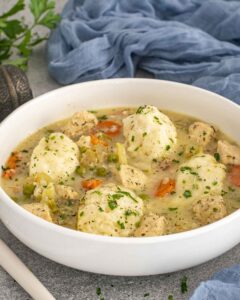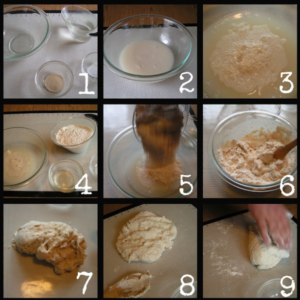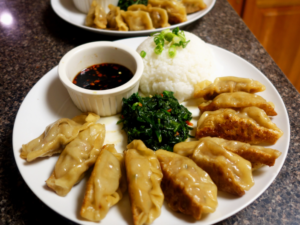Introduction: The Secret to Fluffy Chicken Dumplings
Do your fluffy chicken dumplings often turn out dense or chewy? Achieving the perfect light texture can be tricky, but it’s not impossible. By understanding common mistakes and applying proven tips, you can create the ultimate comfort food every time. If you’re looking for consistent results, learn how to make dumplings with premixes for an easy solution.

What Makes Chicken Dumplings Fluffy?
To achieve light and fluffy chicken dumplings, focus on these key factors:
- Proper Ingredients: Use fresh baking powder, cold fat (like butter or margarine), and the right liquid-to-flour ratio.
- Correct Cooking Method: Dumplings steam as they cook, so maintaining a low simmer and keeping the pot covered is essential.
Explore more tips for using the right ingredients in Bisquick Chicken Dumplings.

Why Are My Chicken Dumplings Dense or Chewy?
Here are some common reasons your chicken dumplings might not be light and airy:
- Overworking the Dough: Mixing too much activates gluten, leading to dense, chewy dumplings.
- Incorrect Ratios: A dough that’s too wet or dry won’t hold its shape or cook evenly.
- Boiling Instead of Simmering: High heat can cause dumplings to break apart or seal too quickly.
- Expired Leavening Agents: A baking powder that’s too old won’t provide the lift needed for fluffy dumplings.
- Lack of steam: Dumplings need steam to rise, so always cover the pot during cooking.
Learn more about the impact of dough preparation in “Biscuit Dough vs. Dumplings” & “3 Components of Dumplings.”.
Troubleshooting Fluffy Dumplings
Here are steps to fix common issues and achieve fluffy chicken dumplings:
- Use Cold Fat: Cold butter or margarine creates air pockets as it melts, making dumplings fluffy.
- Mix Gently: Combine ingredients just until the dough holds together to prevent toughness.
- Simmer, Don’t Boil: Boiling can break dumplings; keep the broth at a gentle simmer.
- Cover the Pot: Steam is essential for proper rise and fluffiness.
- Check the Freshness of Baking Powder: Always use fresh leavening agents for optimal results.
Dive deeper into dumpling preparation in “3 Components of Dumplings.”.
Common Issues with Dense Dumplings
Dense dumplings can ruin an otherwise perfect meal. Here’s why it happens:
- Overmixing the dough activates too much gluten, resulting in toughness.
- Using old or expired leavening agents prevents the dough from rising.
- Boiling dumplings instead of simmering breaks their structure.
Visit “3 Components of Dumplings” for tips on fixing ingredient-related issues.
Tips for Perfect Fluffy Chicken Dumplings
Follow these expert tips to perfect your fluffy chicken dumplings:
- Use Cold Butter: Cold fat creates texture by forming air pockets.
- Simmer at Low Heat: Gentle cooking ensures dumplings don’t fall apart.
- Rest the Dough: Allow the dough to sit for 10 minutes to relax the gluten.
- Avoid Overcrowding: Dumplings need room to expand while cooking.
For more on dumpling techniques, read “Biscuit Dough vs. Dumplings.”.

FAQs: Addressing Common Concerns
Why are my dumplings hard and chewy?
Hard dumplings often result from overmixing or boiling the broth. Focus on gentle mixing and low heat.
How do I fix dense dumplings?
Dense dumplings can’t be fixed after cooking, so prevention is key. Use fresh leavening agents and mix minimally.
Can I use self-rising flour for dumplings?
Yes, self-rising flour contains a leavening agent, making it a convenient option for fluffy dumplings.
Conclusion
Achieving fluffy chicken dumplings requires attention to detail, the right ingredients, and proper cooking techniques. By avoiding common mistakes and experimenting with tips like using buttermilk or cold butter, you can elevate your dumpling recipe to perfection. Explore the linked resources for more guidance and start making the fluffiest chicken dumplings today. Discover how ingredient roles affect texture in “3 Components of Dumplings.” Begin your journey to the fluffiest dumplings by understanding the key ingredients and techniques.
